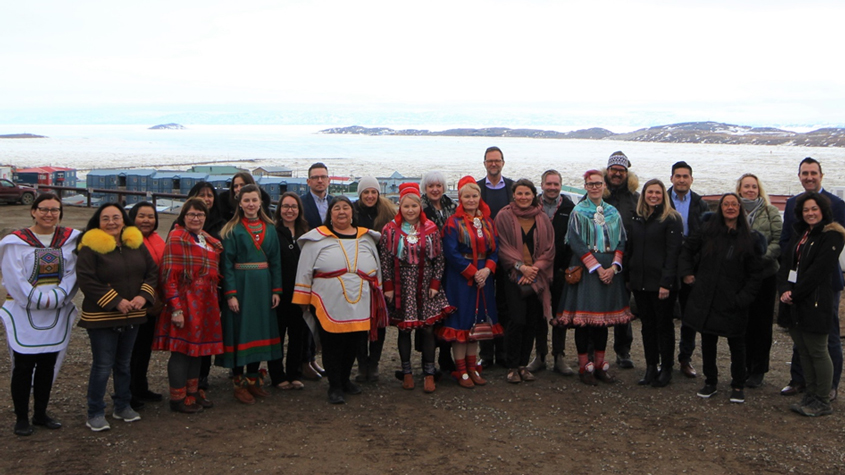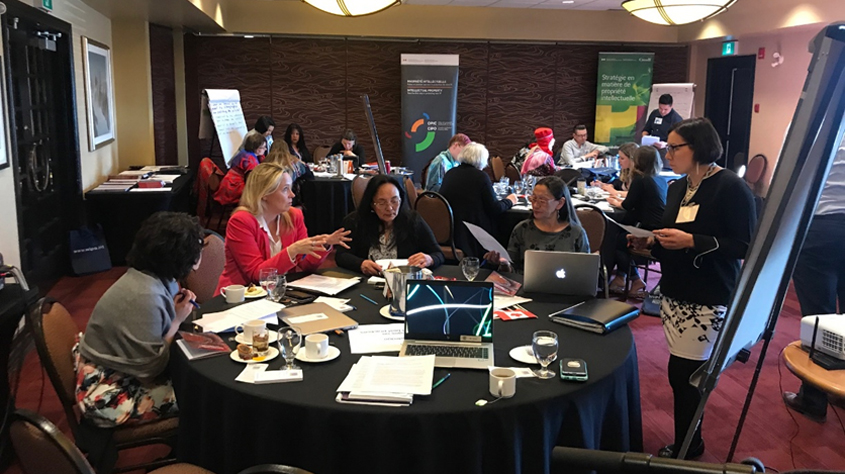WIPO Organized Practical Workshop Above Arctic Circle
September 27, 2019
A three-day practical workshop from May 14 to 16, 2019, gathered 16 representatives from two indigenous peoples that live in the Arctic region, Inuit and Saami, as well as government officials from Canada, Finland, and Sweden to discuss intellectual property (IP) in relation to traditional knowledge and traditional cultural expressions.

Background
In Iqaluit, the capital of the Inuit territory Nunavut in Canada – a city of approximately 7000 inhabitants – WIPO and the Government of Canada organized a Practical Workshop on Intellectual Property, Traditional Knowledge and Traditional Cultural Expressions for Countries from the Arctic Region in collaboration with a local indigenous partner, Nunavut Tunngavik Inc. (NTI).
The Workshop was organized for indigenous peoples and government officials from Canada (the host country) and four Nordic countries, namely Denmark, Finland, Norway, and Sweden. Denmark and Norway were not able to participate in the Workshop.
I learned a lot about IP rights that is of great benefit and use for me in my work
Ellacarin Blind, Saami participant
This unique event took close to two years to organize and considerable time and effort went into its design, planning and organization. It was the result of a close collaboration with the Government of Canada and our local partner NTI throughout that time.
This Workshop was an incredible opportunity for a diverse group of people from countries across the Arctic, each with unique experiences and perspectives, to gather in dialogue and sharing. It allowed us to listen, learn, and explore the opportunities and challenges in protecting traditional knowledge and traditional cultural expressions within and beyond the IP system. We look forward to continuing these ongoing conversations in domestic and international contexts through the implementation of Canada’s IP Strategy and at WIPO IGC negotiations, respectively.
Mark Schaan, Director General, Marketplace Framework Policy Branch, Innovation, Science and Economic Development Canada
Inuit and Saami indigenous peoples are famous for their handicraft and their art, as well as their knowledge about the nature and natural resources in their respective areas. However, due to gaps in protection in the current IP system, their knowledge and expressions of indigenous cultures are often vulnerable to misuse and misappropriation.
Objectives and methodology
One of the key objectives of the Workshop was to impart basic knowledge of the main principles, systems and tools of the IP system and how they relate to indigenous peoples, emphasizing both the potential value that IP can bring in support of traditional knowledge and the protection of traditional cultural expressions, as well as the challenges. The Workshop also provided the opportunity for networking between government officials and indigenous peoples within the Arctic region and the exchange of experiences on best practices.

The program of the Workshop was interactive, and comprised a mixture of presentations, plenary discussions, small group work, and case studies. A representative of the International Trademark Association (INTA) participated in the event on a pro bono basis and facilitated the discussions related to the use of distinctive signs.
This unique Workshop – held above the Arctic Circle, in an indigenous territory – created a space for Inuit and Saami representatives and officials from Canada, Finland, and Sweden to engage directly with each other on this important subject. They shared experiences, debated options and identified possible practical and policy solutions. Our enormous thanks to the Government of Canada for co-organizing this unforgettable Workshop.
Wend Wendland, Director, WIPO Traditional Knowledge Division
Indigenous scholarships and WIPO animation launched in indigenous language
As the Workshop was coming to an end, WIPO announced that it will offer two scholarships to indigenous representatives from the Arctic region in support of their participation in the 2020 WIPO Summer School on IP.
In recognition of 2019 being the International Year of Indigenous Languages, WIPO also launched a sub-titled version of its short animation on traditional knowledge, "The Adventures of the Yakuanoi", in the local Inuit language Inuktitut.